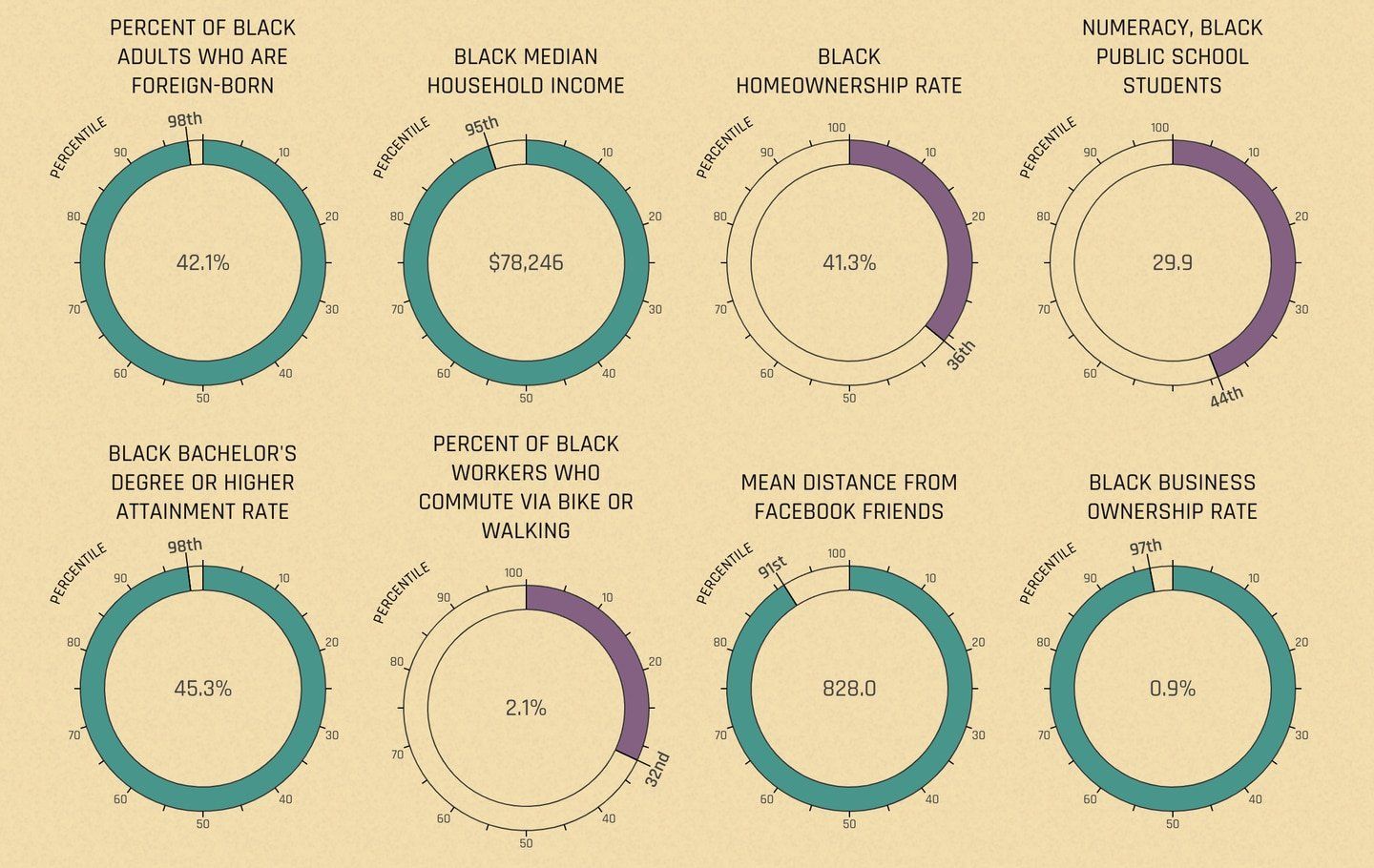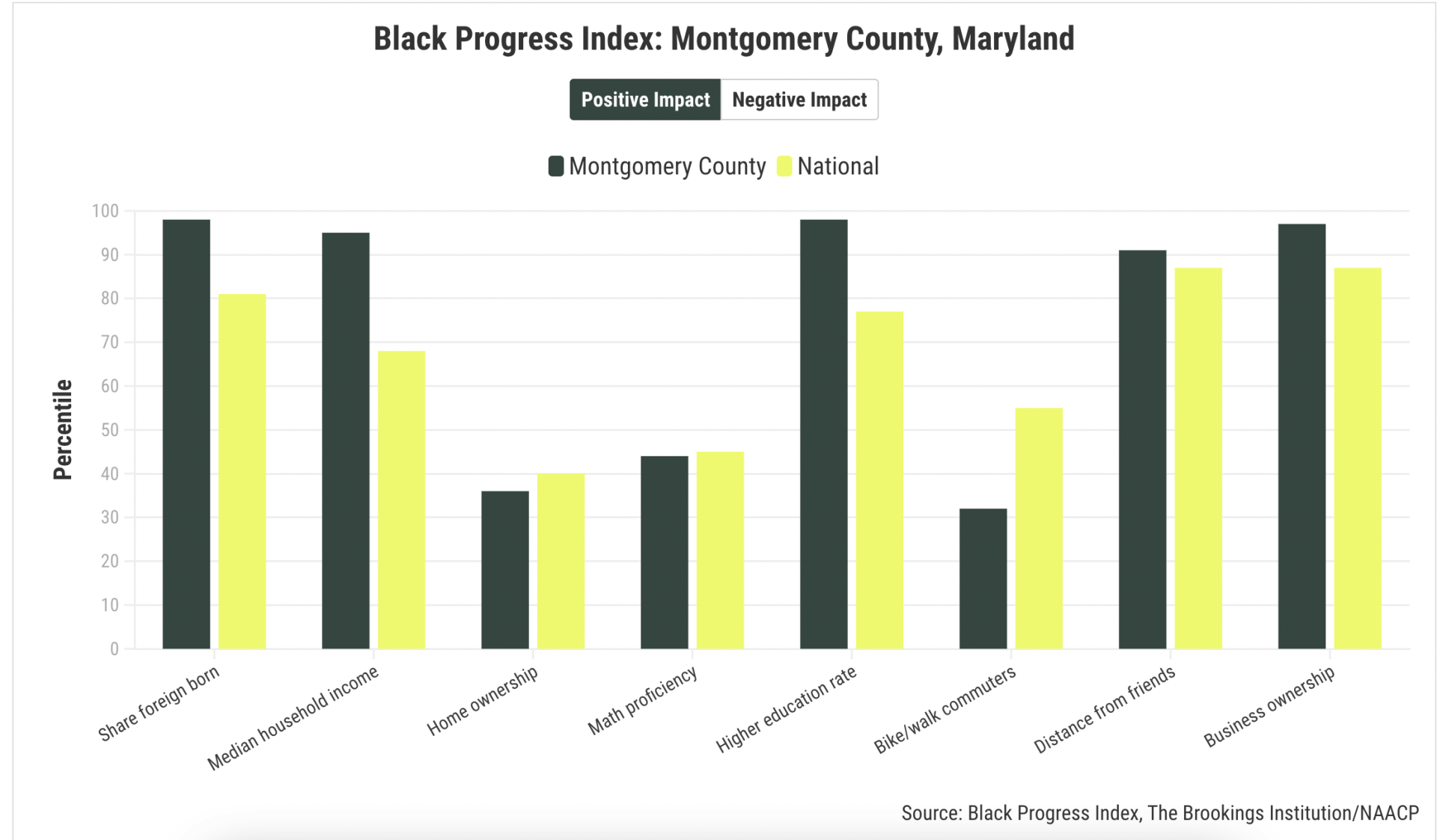Montgomery County, Maryland emerges as place where Black people can live their best lives
Will Jawando’s identity as the son of a Nigerian immigrant father and a White mother from Kansas offered him early exposure to diversity and the varied experiences that life in America can bring. His childhood was no crystal stair, but he was determined to ascend using education as his driver.
“I want to do a lot of good,” says Jawando, who is married to fellow lawyer Michele Jawando; the millennial couple is raising four children. “I’m working hard to ensure that a quality education, civil rights, and opportunities for prosperity are available to everyone.”
Today, Jawando, an attorney, community leader, and former Obama administration appointee, is councilman at large in Montgomery County, Maryland, an office he’s held since 2018. This summer, he handily won the Democratic primary for re-election and will face several Republican challengers in November.
The Jawando family’s achievements are emblematic of a larger phenomenon among successful Black people in the United States. Montgomery County is cited in groundbreaking new data about places nationwide where Black residents are prospering. Dubbed The Black Progress Index, this historic collaboration between the Brookings Institution and the NAACP examines the social factors that influence Black well-being.
Findings include:
- A high percent of foreign-born Black people was one of the strongest predictors of longevity in a community.
- Regions with larger shares of Black children not living with their father, as well as firearm fatalities, showed substantive harms. In county-level census data sampled in the report, 57% percent of Black children were not living with their father.

The Black Progress Index is an interactive, public research tool culled from U.S. Census Bureau data and a wide array of other sources: the Centers for Disease Control and Prevention, the IRS, real estate brokerage Redfin, and Facebook, among others.
Researchers analyzed assets and opportunities tied to quality of life based on 13 index components in key areas: family health, wealth, safety, environmental quality, and human/social capital. The latter encompasses factors such as Black college attainment rates and friendships.
The Black Progress Index finds Black people living in Montgomery County, a community of 1 million people near the nation’s capital, are doing well according to health and well-being measures. The index predicts a Black life expectancy of 81.3 years in this affluent enclave, where median household incomes hover around $112,000.

In terms of educational attainment, about 59% of residents in the county have a bachelor’s degree. This, too, dovetails with information from the Black Progress Index. It shows that the percentage of Black adults 25 and older with at least a bachelor’s degree highly correlates with longer life.
The individual impact of education on health is well established, researchers say, and living near higher-income adults may boost health in other ways, such as improving government policy, safety, and resources.
Black entrepreneurship, measured in the index by the rate of business ownership, is a relatively small but still significant predictor of life expectancy. There are more than 6,000 minority-owned firms in Montgomery County, according to census data. Roughly 1% of Black adults ages 18 to 64 own businesses, researchers say, and this fact adds roughly 0.2 years onto one’s life.
Jawando agrees. While acknowledging the successes in his county, he’s worked to help alleviate disparities surfaced by the pandemic. And in his new book, “My Seven Black Fathers: A Young Activist’s Memoir of Race, Family, and the Mentors Who Made Him Whole,” he describes being raised by a divorced single mom in a vermin-infested apartment. He was moved from school to school, branded “disruptive,” and he lost a childhood friend to gun violence.
Yet a series of influential Black men — among them his stepfather; former President Barack Obama; and, later, his biological father — inspired him to reach his potential. Jawando says he won’t rest until everyone has similar opportunities to soar.
Might the data revealed in the Black Progress Index inspire a new generation of strivers? Brookings Interim President Amy Liu believes it could.
“There are two things that make this index powerful and unique,” Liu says. “The data literally brings the insights closer to home, in the communities in which Black residents live. Further, the index focuses on predictors of Black life success, not just chronicling more problems.” Liu says, “Together, these make the index energizing and actionable.”
Credit Donna M. Owens "Montgomery County, Maryland emerges as place where Black people can live their best lives",
https://www.bostonglobe.com/2022/09/28/opinion/montgomery-county-maryland-emerges-place-where-black-people-can-live-their-best-lives/
















